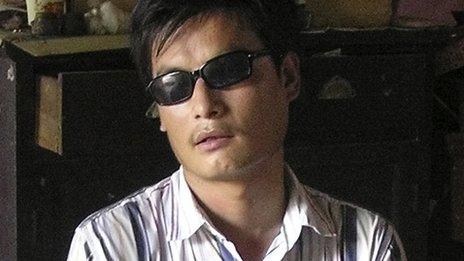Julian Assange row: Americas ministers to meet
- Published
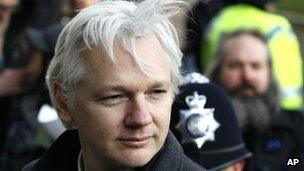
Julian Assange took refuge at Ecuador's embassy in London in June
Foreign ministers from across the American continent will meet next Friday to discuss the impasse between the UK and Ecuador over Julian Assange.
Ecuador has granted asylum to the Wikileaks founder who took refuge at Ecuador's embassy in London in June.
He faces extradition to Sweden over sexual assault claims, which he denies.
Twenty-three members of the OAS (Organization of American States) voted to have the meeting in Washington DC. The US was one of three to oppose it.
On Thursday, Ecuador announced it had granted Mr Assange asylum but the UK has said it will not allow him safe passage out of the country.
The South American country has said Mr Assange's human rights could be violated if he is sent to Sweden to be questioned over allegations that he sexually assaulted two Wikileaks supporters in Stockholm in 2010.
Australian Mr Assange, 41 - whose Wikileaks website has published a mass of leaked diplomatic cables embarrassing countries including the US - fears he would then be passed on to authorities there.
At emergency talks held by the OAS in Washington, US envoy Carmen Lomellin said a meeting of foreign ministers "would be unhelpful and harmful to the OAS' reputation as an institution".
She said the US - which was joined in a no vote by Canada, and Trinidad and Tobago - did not "recognise the concept of diplomatic asylum as a matter of international law".
OAS secretary general Jose Miguel Insulza said Friday's meeting would address "the problem posed by the threat or warning made to Ecuador by the possibility of an intervention into its embassy in London".
"The issue that concerns us is the inviolability of diplomatic missions of all members of this organisation, something that is of interest to all of us," he added.
Ecuador had described as a "threat" a UK letter that drew attention to the Diplomatic and Consular Premises Act 1987, external, which could allow it to potentially lift the embassy's diplomatic status to allow police to enter the building to arrest Mr Assange for breaching his bail terms.
The Foreign Office later said the letter had been sent to clarify "all aspects of British law that Ecuador should be aware of".
Britain's permanent observer to the OAS, Philip Barton, said the UK would continue to work with Ecuador "to bring this matter to an amicable and successful conclusion".
The UK Foreign Office has said it will follow its obligations, under the Extradition Act, to arrest Mr Assange if he leaves the embassy.
Meanwhile, an "extraordinary meeting" of the Union of South American Nations has been convened in Ecuador on Sunday to discuss the situation.
- Published18 August 2012
_afp.jpg)
- Published17 August 2012
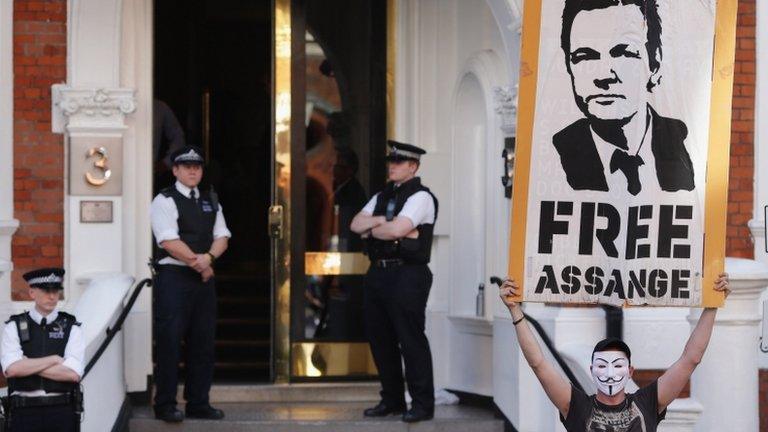
- Published17 August 2012
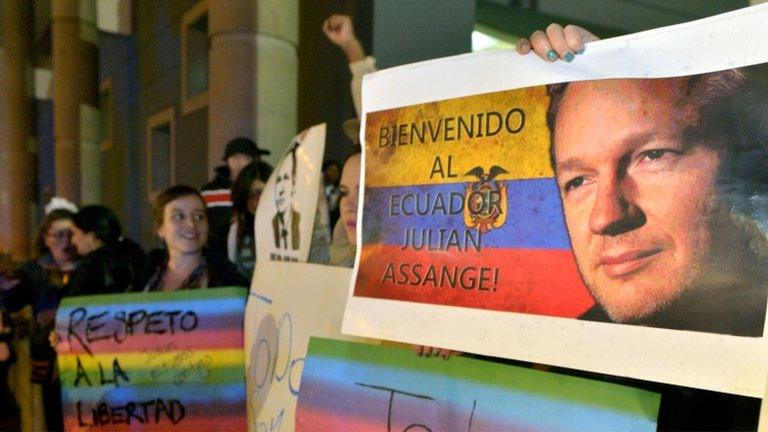
- Published25 June 2024
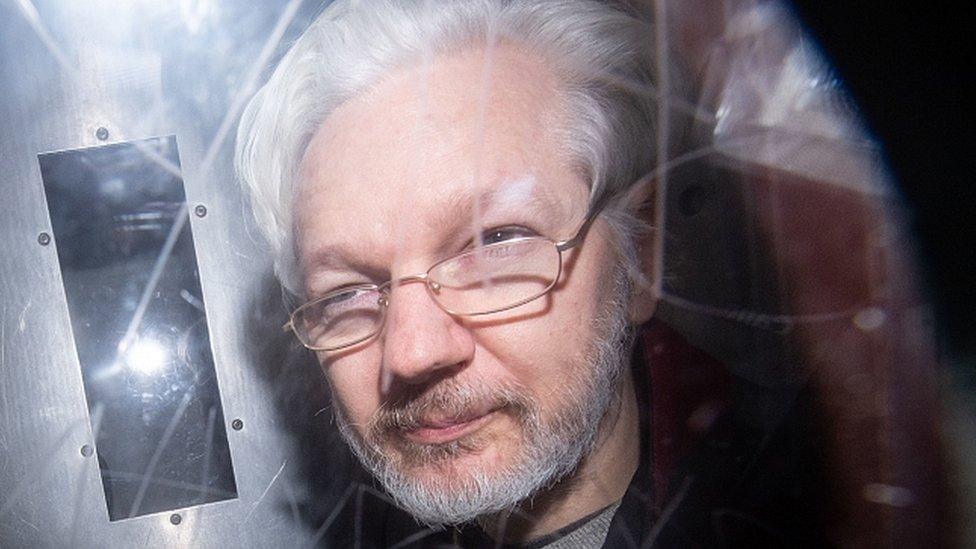
- Published16 August 2012
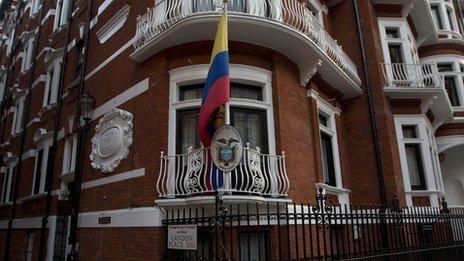
- Published26 June 2024
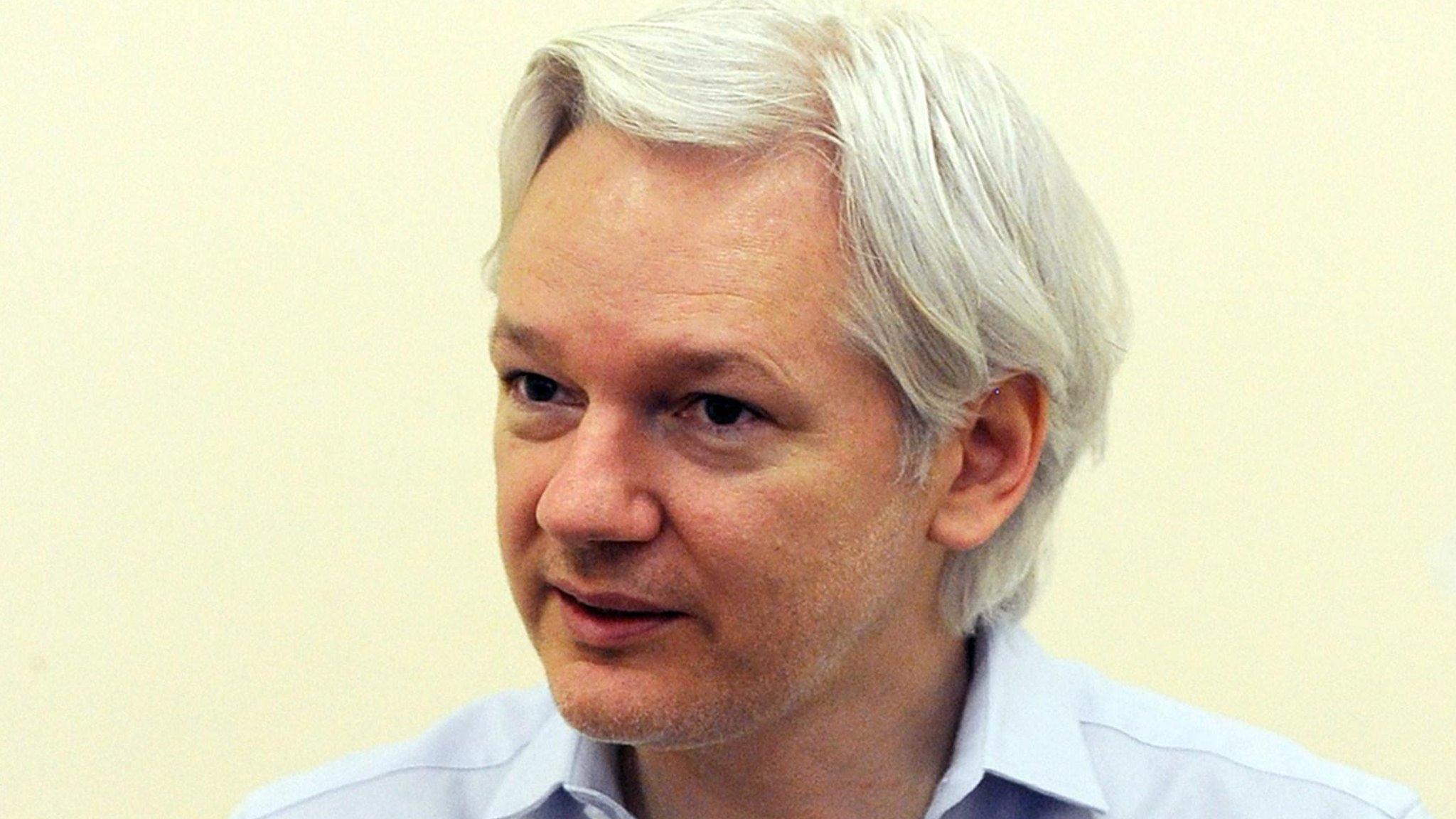
- Published2 May 2012
